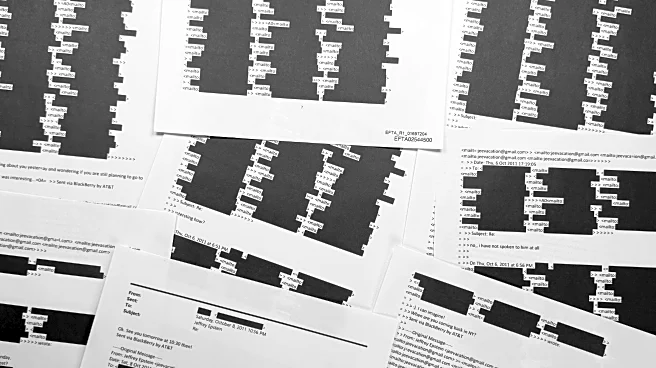What's Happening?
A UAE court has ordered a client to pay Dh125,000 in legal fees to a law firm after successfully representing the client in a financial claim and filing a criminal complaint. The court found that a valid agreement existed between the client and the law firm,
and the claim was limited to enforcing the contract as written. The client did not attend or dispute the agreement at any stage, and there was no breach of contract by the law firm. The firm had undertaken the criminal complaint procedures in Dubai before the case was closed. The lawsuit filed by the law firm sought the agreed fees, 5 percent legal interest from the due date until full payment, and reimbursement of litigation costs.
Why It's Important?
This ruling underscores the importance of clear contractual agreements between clients and legal representatives. It highlights the legal system's role in enforcing such agreements, ensuring that professionals are compensated for their services. The decision may influence future cases where clients dispute fees, emphasizing the necessity of written agreements. For the legal industry, this case serves as a reminder of the potential financial implications of contract enforcement and the importance of maintaining clear communication with clients. It also reflects the judiciary's stance on upholding contractual obligations, which could impact how legal services are negotiated and agreed upon in the UAE.
What's Next?
The court's decision may prompt other law firms to review their contractual agreements with clients to ensure clarity and enforceability. Clients might become more vigilant in understanding the terms of their agreements to avoid similar legal disputes. Additionally, this case could lead to increased scrutiny of fee arrangements in the legal industry, potentially influencing regulatory practices concerning legal fees and client agreements. Law firms may also consider implementing more robust measures to secure payment and prevent disputes, such as requiring upfront payments or clearer terms in contracts.
Beyond the Headlines
The case highlights broader ethical considerations in the legal profession, particularly regarding fee transparency and client communication. It raises questions about the balance between fair compensation for legal services and the client's understanding of fee structures. This could lead to discussions within the legal community about best practices for fee agreements and client relations, potentially influencing industry standards and ethical guidelines.
















